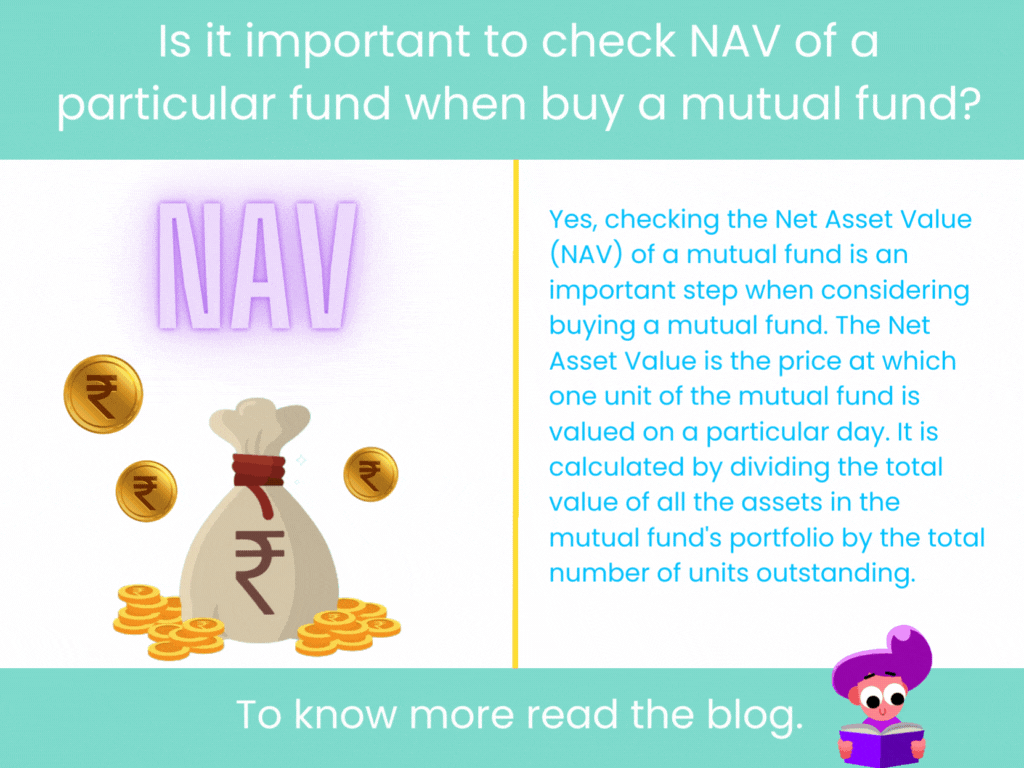Is it important to check NAV of a particular fund when buy a mutual fund?
Yes, checking the Net Asset Value (NAV) of a mutual fund is an important step when considering buying a mutual fund. The Net Asset Value is the price at which one unit of the mutual fund is valued on a particular day. It is calculated by dividing the total value of all the assets in the mutual fund's portfolio by the total number of units outstanding.
Here's why checking NAV is important:
Pricing Reference: The NAV gives you an idea of the current price of a single unit of the mutual fund. It's the price at which you buy or sell units of the fund. It's important to monitor the NAV to ensure you're buying or selling at a fair market price.
Performance Tracking: Comparing the NAV over time can help you track the performance of the mutual fund. A rising NAV generally indicates that the fund's investments are performing well, while a falling NAV could indicate poor performance.
Cost Consideration: Generally, when you invest in a mutual fund, you buy units at the prevailing NAV. It's important to be aware of the NAV at the time of investment since it directly affects the cost of acquiring units.
Market Timing: While market timing is generally not recommended for long-term investments, some investors may choose to monitor NAV trends to make informed decisions about when to invest. However, timing the market can be risky and is not a guaranteed strategy.
Comparison: Comparing the NAVs of different mutual funds can give you an idea of the relative performance of various funds. However, it's crucial to remember that the NAV alone doesn't provide a complete picture of a fund's performance. Other factors such as expense ratio, historical performance, investment strategy, and risk factors should also be considered.
SIP Investments: For Systematic Investment Plans (SIPs), where you invest a fixed amount at regular intervals, the NAV at the time of each investment determines the number of units you get. This means that you may buy more units when the NAV is lower and fewer units when the NAV is higher, potentially benefiting from rupee cost averaging.
It's important to note that while NAV is an important factor, it's not the sole criterion for evaluating a mutual fund. Other factors such as the fund's investment strategy, historical performance, expense ratio, fund manager's track record, and your own investment goals and risk tolerance should also be considered before making an investment decision.


